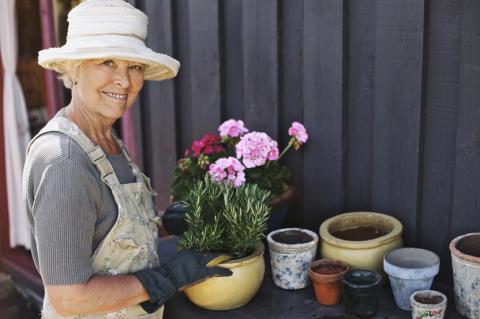Content Map Terms
Image

A healthy lifestyle, including eating nutritious foods and being active, can help you age well and protect your mental health. There are also other ways to nurture your mental well-being as you get older.
Here are some tips to keep your mind strong and encourage good mental health as you age.
- Know the signs of depression and anxiety
Some simple ways to ease the symptoms of mild depression: increase physical activity, talk with an understanding person, increase social contact, or do an activity you like. If symptoms continue, seek help. - Plan ahead for future changes
Feel more in control about changes that come with age by making decisions and thinking about your choices now. Your preparation will help you cope with those changes and reduce stress related to change. - Foster resiliency
Being resilient is about bouncing back from challenges or hardship. Resiliency can improve your level of optimism and help fight depression. Learn ways to help you adjust to changes in your life and build your resiliency. - Manage your stress level
Increased stress is associated with depression and anxiety. Ways to lower and manage your stress include positive self-talk, relaxation, getting enough physical activity and sleep, spending time in nature, and talking with a trusted friend. - Spend quality time with friends and family
Connect with family and friends to keep your support system strong and active. Schedule a walk with a good friend, visit a family member or plan a group hike or bike ride. - Get enough sleep
Sleep improves your ability to manage stress. Sleep helps with hormonal balance, your immune system, energy, and mood. The quality of your sleep changes as you age. To get enough rest for your brain and your body to function well, break unhealthy sleep habits and get good quality sleep regularly. - Use alcohol wisely
Rely on healthy strategies to fight stress and manage changes in your life, rather than using alcohol to help you cope. Loneliness and depression can contribute to increased use of alcohol, and increased alcohol use can lead to loneliness and depression, as well as other health issues.
Fact: Currently, 20 per cent of Canadians aged 65 and older are living with a mental illness.
Last Updated: October 1, 2015
